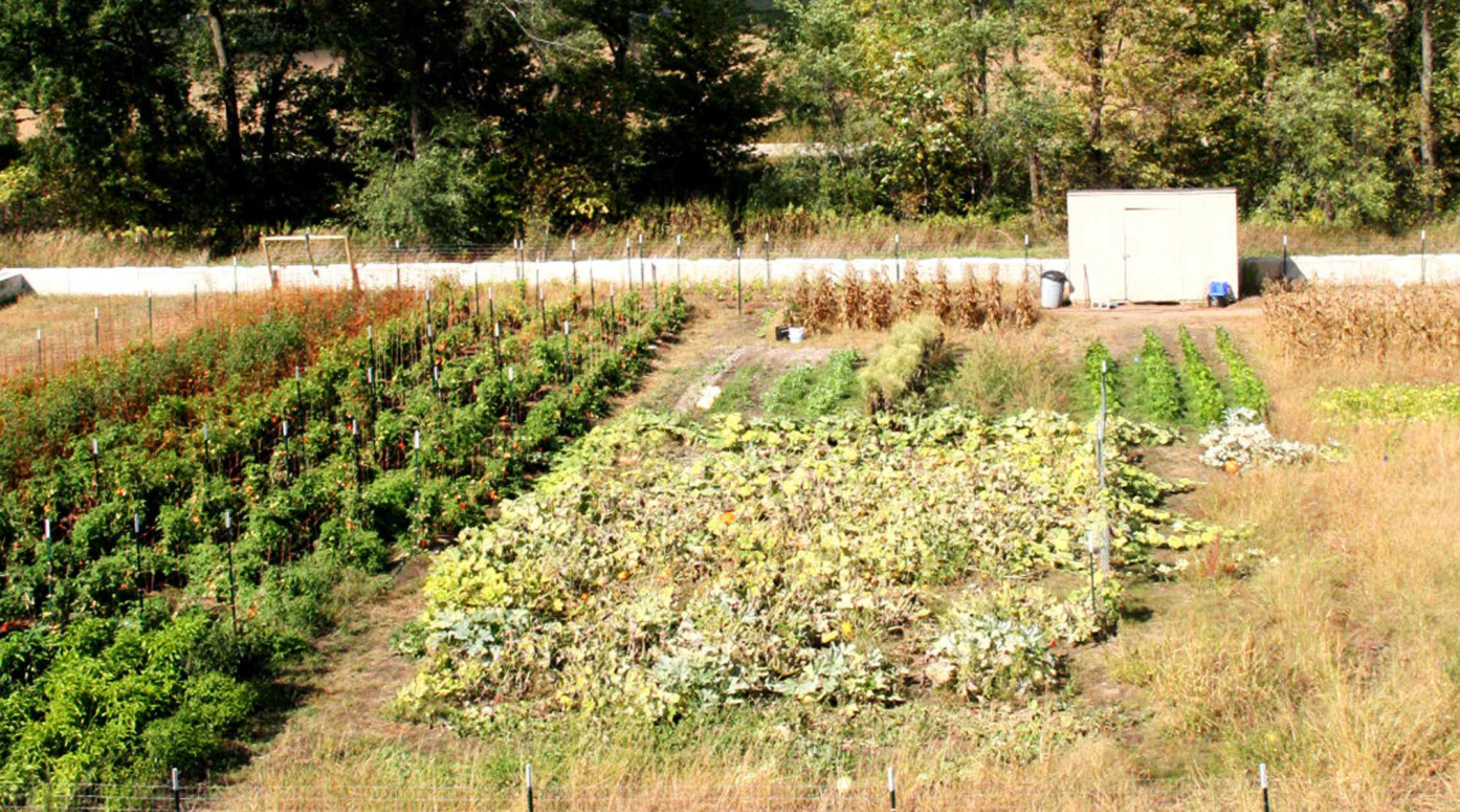As the school year comes to a close and spring weather heads toward summer, Minnesota hobby gardeners are out preparing their plots for summer crops. A few students at Gustavus, though, have much larger ambitions. For the second consecutive year, a select group of students will don their straw hats and overalls and get to work at Big Hill Farm, Gustavus’ own organic farm.
Started as a senior project by Cat Wiechmann ‘09 and Eliza Swedenborg ’09, the Big Hill Farm is a student initiative to provide locally grown organic fruits, vegetables and herbs to the Gustavus Dining Service and also to the St. Peter Farmer’s Market. Last year the farm harvested a variety of crops including tomatoes, peppers, green beans, onions, zucchini and other miscellaneous herbs and fruits.
“Last year went extremely well, and we’re hoping for even better this year,” Junior English Major and Big Hill Intern Jordan Walker said. Walker, who was one of four original interns last summer, will be one of three interns working full time this summer. He is joined by Senior Political Science Major Kimberly Braun and Sophomore Dance and Psychology Major Renee Guittar.
“I’m new this year, and I’m really excited to learn how [Big Hill Farm] works,” Guittar said.
After the Farm’s successful first season last year, former interns are still raving about their experience last summer and fall.
“It was like the coolest thing I’ve ever done. I found a new appreciation for organic and local food, and I realized how important it is to know where your food comes from,”former intern and Senior Dance and Psychology Major Sarah Jabar said. “It really pushed my boundaries, because I hadn’t done outdoor work before, but it was really satisfying.”
“The farm is really something special to me. I’ll always have a connection to it,” Senior Environmental Studies Major Lucas Neher said, another of the original interns at Big Hill. “It was a really rewarding experience.”
The Farm has taken up a new residence for this season. Previously located at the northwest edge of campus, across from the baseball fields, the new Big Hill Farm plot will be alongside the Physical Plant and very close to the Community Garden. The new plot is equipped with piping to deliver irrigation to this season’s crops, which will include around 250 tomato plants, several pepper varieties, green beans, onions, zucchinis, melons, pumpkins and some assorted berries. The focus of the farm this year is to grow a greater quantity of their staple crops, like tomatoes, and smaller amounts of the varied crops. This will allow the farm to provide more organic food to the Gustavus Dining Service.
“We’re doing more bulk this year,” Walker said, “Hopefully we can make a bigger impact.”
One thing the farm has working for them this year is the inevitable interest that Nobel Conference 46 will stir up.
“We’re really excited about Nobel. Last year, not a lot of people heard about [Big Hill Farm],” Walker said. The conference, which will take place October 5 and 6, 2010, is titled” Making Food Good “and will deal with many issues relating to sustainable, organic farming and the food service industry.
“I think that the green movement/organic food movement has a bad reputation because it’s this ‘posh’ fashionable statement. Big Hill can show that it’s a better way to get food locally without poisoning the earth,” Braun said.
Though this is only the second year of the Big Hill project, everyone associated is hoping that it will become a lasting inclusion in Gustavus’ future.
“It’ll be a lasting solution to an environmental problem,” Guittar said.
Big Hill has already begun work for the season, with the help of Physical Plant employees. The plot has been tilled, and seeds are already being delivered. For any students who are interested in volunteering with the Big Hill Farm, there is work to be done before the school year ends and throughout the summer. The plot still needs to be spread with manure and fertilizer, which will begin at the end of the week, followed by another two weeks of planting. Interested individuals may contact Kimberly Braun by email at kbraun2@gac.edu.

I hope you some people who are willing and ready to participate in this project. I’m interested in herb gardening myself and I think more should get involved in planting herb gardens, vegetable gardens or any other, taking into consideration what’s going on in our environment today.
I also created a herb gardening website dedicated to helping people who are serious about growing gardens get the results they are looking for.
You’re welcome to take a look: http://www.HerbGardeningAnswers.com/
Dustin B.
The one thing that any garden needs when starting is a soil test. Too many times compost is assumed as the only needed input. This is especially the downfall of organic gardeners. Here is a brief overview of different types of soil tests.
http://www.aglabs.com/soilTesting.html
Kudos to Big Hill Farm. Please be careful when implementing the new techniques because it is these new techniques that got us away from the original organic farmers of days gone by.
http://www.thebenefitsoforganicfood.org
Interesting project! I think should grow a high nitrogen plant to implement the soil first.